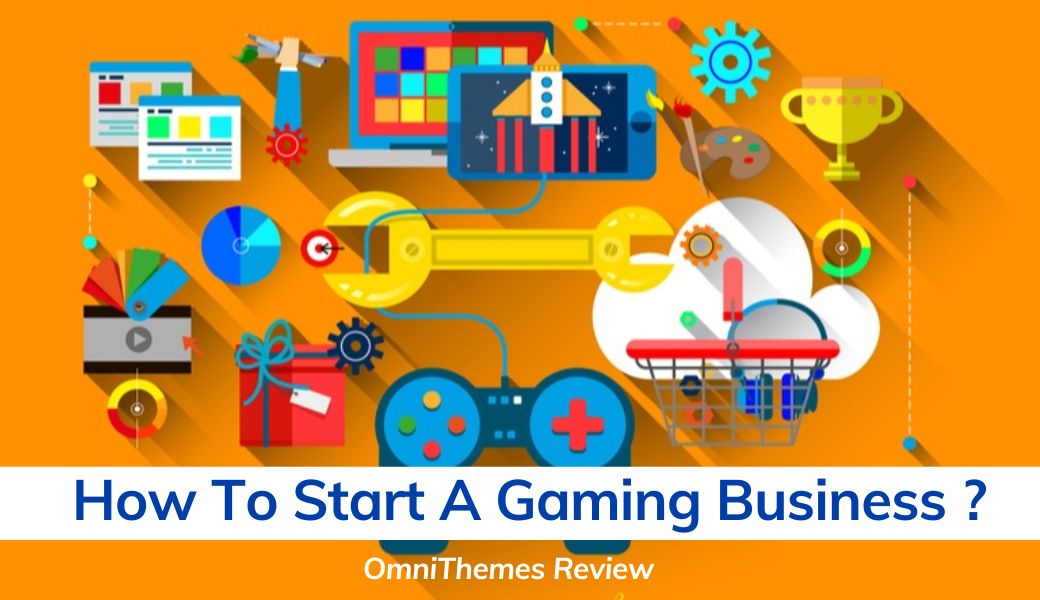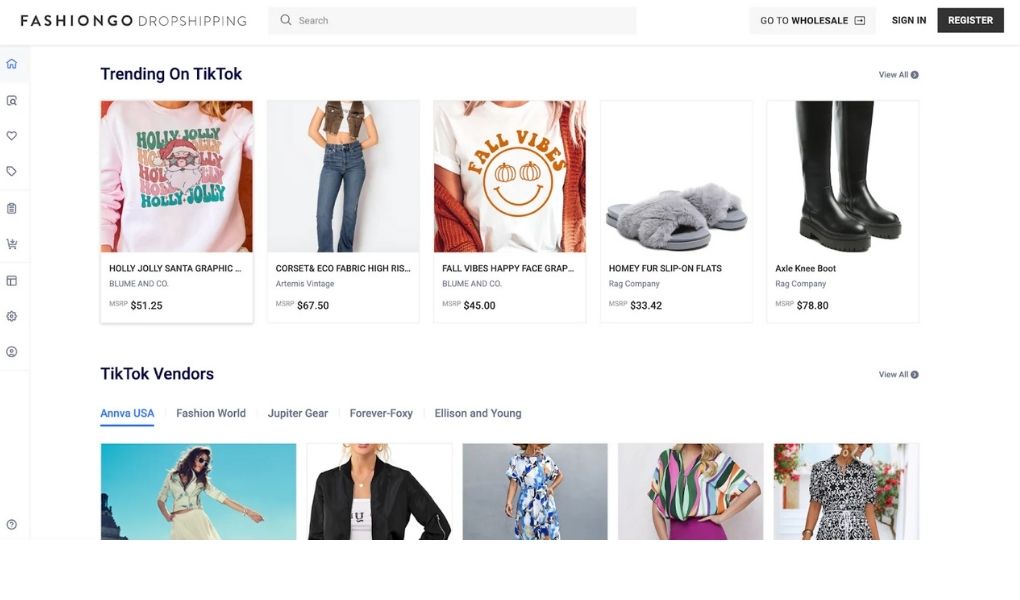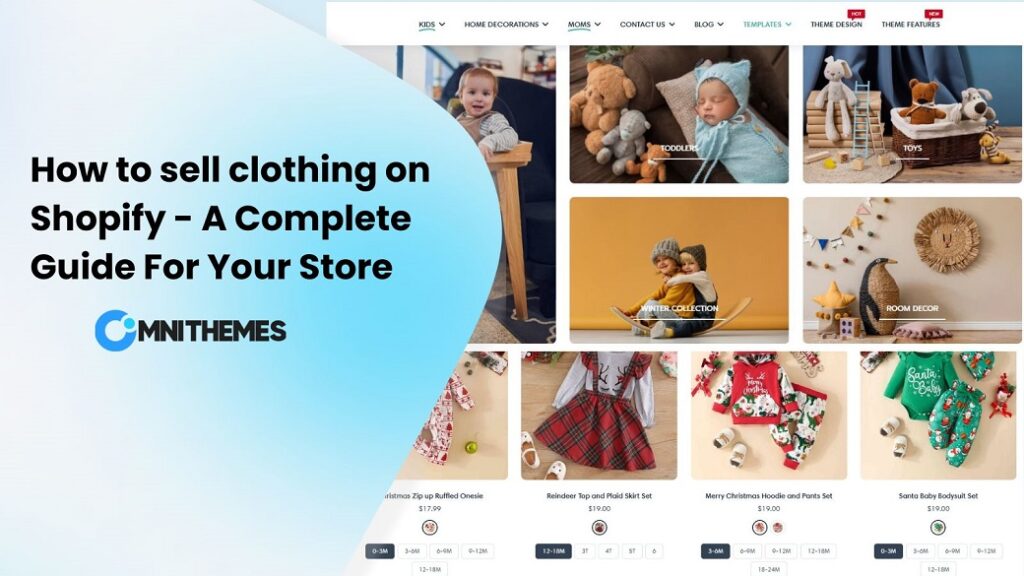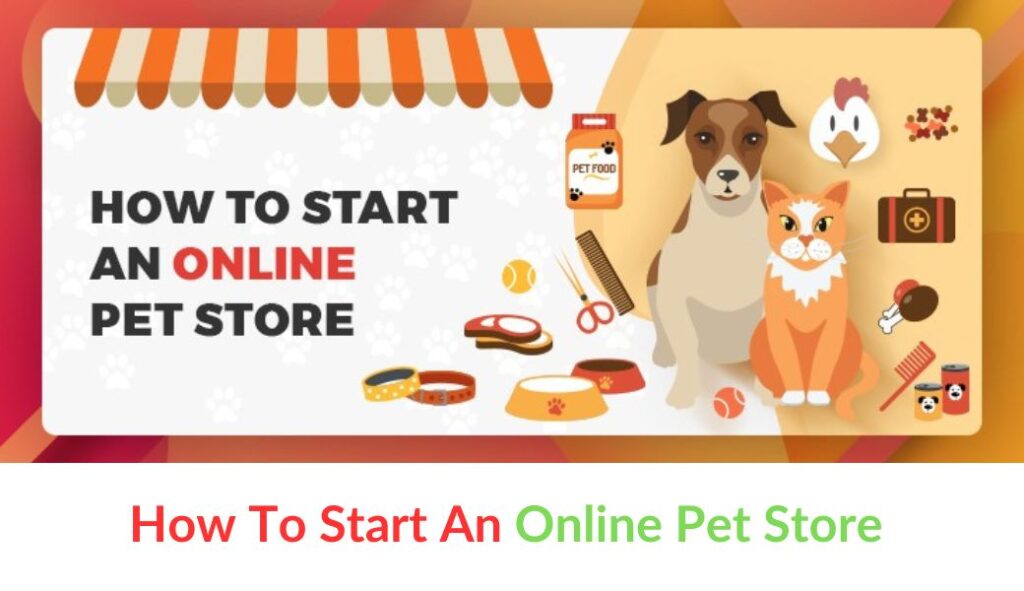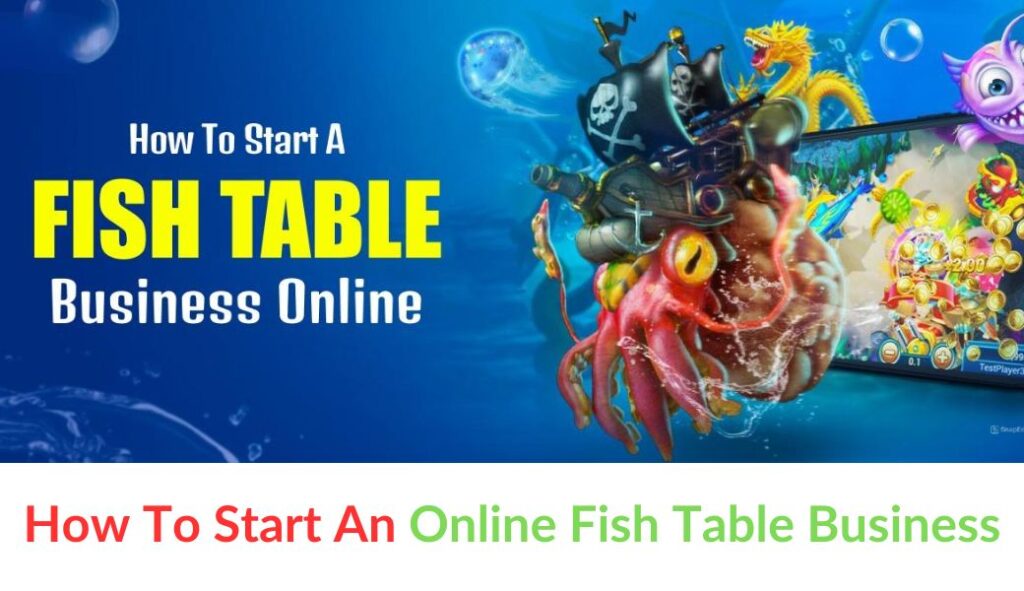Have you ever thought about turning your passion for gaming into a successful business? or you see the potential of this market in the next few years. This niche is flourishing globally in both developed and developing countries with a huge number of players. This comprehensive guideline will help you to understand this market deeply and navigate you to create a successful business.
We’ll also dive into the how to start a gaming business process, by developing a unique concept that appeals to gamers to evaluate the existing industry.
Gaming Market: Overview
Before step to detailed step, have a look at some overview points of the gaming industry worldwide to have the best view about the market and your opportunities
Source: SKYQUEST
According to the report by SKYQUEST in Feb 2024. The gaming market has witnessed a significant increase, which is a projected CAGR of 13.4% from 202 to 2031. This means the market size will reach 492.5 billion by 2021, compared to USD 203.4 billion in 2019.
The gaming market is experiencing significant growth, with a projected CAGR of 13.4% from 2024 to 2031. This translates to a market size of USD 492.5 billion by 2031, compared to USD 203.4 billion in 2019.
| Year | Market Size ( USD Billion ) |
| 2019 | 203.4 |
| 2023 (projected) | 230.79 |
| 2031 (projected) | 492.5 |
This opens a lucrative opportunity for you to start a gaming business.As you can see, there are various ways to enter the gaming industry through developing and creating games or gaming services. It’s also an attractive sector for potential investors and entrepreneurs. With the market set to nearly double in size over the next decade, now is the perfect time to carve out your niche in this dynamic field.
Why You Need to Start a Gaming Business.
If you’re an avid gamer with an entrepreneurial spirit, you should start a gaming business now, it could be the ultimate power-up for your future through a variety of benefits!
- A Developing Market with Loyal Fans: By its explosive growth, there will be a dedicated, and ever-expanding client base hungry for attratice products and services.
- Diverse Business Opportunities: So many of an entry point for you! Whether you’re passionate about creating quality games, strong hardware, enhancing an esports match, etc, there’s a niche waiting for you to fill.
- Passion Meets Profit: Unlike traditional businesses, a gaming business allows you to turn your love for games into a profitable venture. Therefore, you’ll be surrounded by a community that has the same passion, making the work itself inherently rewarding.
- Building a Community: Gaming businesses have a unique sense of community when compared to others. It’s even changed for each gaming niche. As a result, building a innovative community can take place through a local esports cafe or a curated online store. Your business can become a hub for gamers to connect, share experiences, and celebrate their shared passion.
- High Engagement and Brand Loyalty: One of the most devoted and involved customer bases is gamers. You may create enduring relationships with your clients and ensure a successful, long-lasting business by offering high-quality goods and experiences.
Money is important! But it’s only some things in a successful business. Immersing yourself in a dynamic and passionate world is the best. So, if you’re ready to take your time for games to a higher level. It’s time to grab your entrepreneurial controller and get in the game
How to Start a Gaming Business – 7 Simple Steps
1. Define Your Gaming Business Concept

Parallel to the crazy expansion of the gaming industry globally, it created a multitude of smaller industries inside to adapt to the needs of the market. It’s a massive and ever-growing industry with various segments, each offering opportunities for entrepreneurs.
Check out these popular niches!
Game Development & Publishing
This is the core of the gaming field, you can create video games from concepts and design to programming and testing. On the one hand, publishers finance development and handle the marketing to bring games to potential players.
Hardware
This segment provides physical equipment used for gaming purposes, including companies that design and manufacture consoles, PCs, controllers, headsets, VR gear, and other accessories that enhance the gaming experience for gamers.
Game Retail & Distribution
Some typical game retailed representative as Steam, PlayStation Store & Xbox Live, Sony PlayStation, and Microsoft Xbox consoles, respectively. These businesses offer digital downloads of games, and downloadable content (DLC).
This type of business involves selling games to consumers through physical stores specializing in games or online platforms or even console manufacturers selling games directly through their platforms.
Esports & Competitive Gaming
Esports are organized video game competitions, often with professional players and prize money. Businesses can organize tournaments, broadcast matches, sponsor teams, and players, or provide training facilities.
Game Streaming & Content Creation
The term “streamer” or game streamer is very familiar with use for the decade throughout many games. Streamers can display their gameplay on digital platforms like Twitch, YouTube, etc. This is where the revenue comes through advertising, sponsorships, and donations. If you start a gaming business, it’s effortless support to create streaming platforms as a third party.
2. Create a Business Plan
Creating a detailed business plan is a crucial step in how to start an online gaming business and ensure its future success. Firstly, you should list all information about the business concept, audience, competitive edge in the executive section. For instance, you launch a game named Phoenix Arena which is a state-of-the-art esports arena adapting to the flourishing gaming scene. Your target users are millennials and Gen Z who love to play high-performance, tournaments, and community events.
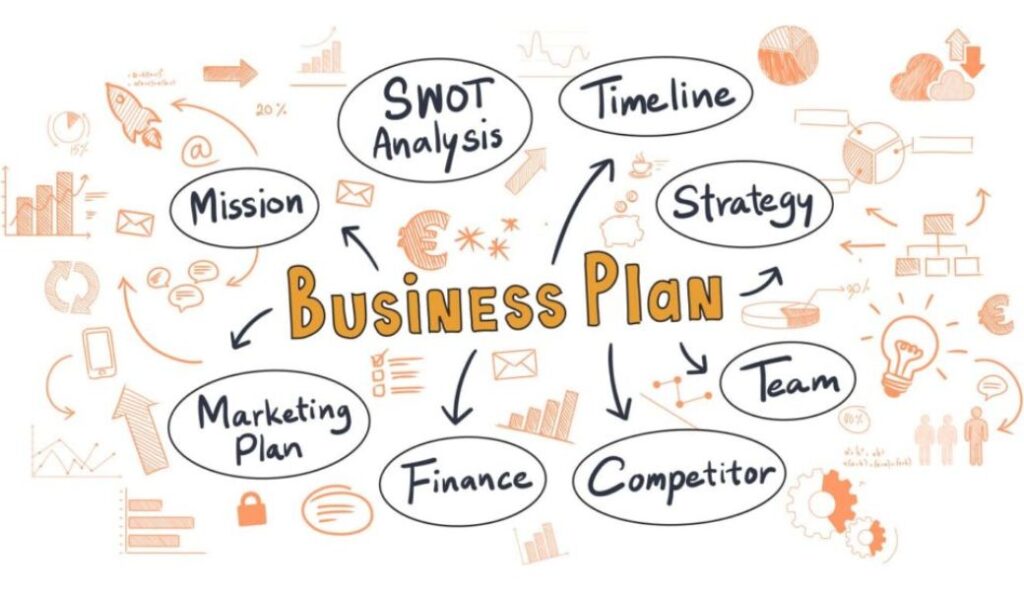
Secondly, define your business structure, mission, and specific gaming niches such as esports cafes, or game development in the Company Description. Marketing your products is also vital in the processing to take your product to customers. A strong marketing plan outline will navigate customers through online advertising, social media, KOL, KOC, loyalty programs, and more.
Lastly, a finalcial projection that outlines startup and operational costs, along with projected revenue streams.If you look for funding like amount requirements and using intend. Remember that this is just a framework, you should tailor the plan to your unique gaming business!
Here are 3 popular templates of business plans that you should consider!
- SCORE: offers an intermediate plan template that adapts to your gaming business
- Bplans: provides industry-specific templates, including one for “Video Game Development Startup”.
- Gamasutra: offers a detailed template specifically for video game development businesses.
3. Secure Financing
You have several options in this area to make sure your travels are successful. If you are a seller on a tight budget, you may fund your initial launch with personal savings, the kindness of friends, family, and relatives, or by looking into side gigs. Complete ownership is provided by this method, although your early growth potential may be constrained.

Small company loans are always available from traditional banks and credit unions; they are essential as your finance process’s trusted partners. But getting a loan demands both a well-written business plan and a spotless credit history. The most compelling evidence to convince the loan officer that you are a deserving champion is this information.
Pre-selling and early publishing your product is a great idea for a double win for your business. You can generate revenue to support development costs and transform your game concept into a playable reality. It also showcases a player’s interest and creates a passionate community around your game.
4. Develop Your Product/Services
4.1. Define Your Niche and Target Audience
Which goods and services do you provide to customers? A strategy game, a MOBA, a first-person shooter, or a puzzle game for mobile devices? Select a niche that meets both the needs of the market and your final objective.
Who may be your ideal clientele? For whom are you creating this game? Are you targeting a certain audience, such as families, kids, die-hard gamers, or just regular mobile users? When developing a successful product, it is essential to comprehend the needs, preferences, and gaming habits of your target audience.
4.2. Concept & Design
What difficulties will gamers encounter? What distinguishes your game as entertaining? Make thorough documentation that explains the story, gameplay, graphic design, and essential elements of your game.
Creating a prototype following a thorough examination of the development process. This enables you to get user input, test essential gameplay components, and refine your concept before devoting substantial resources.
Make a prototype before committing to full development. This enables you to tweak your concept, test essential gameplay components, and get user feedback before devoting substantial resources to it.
4.3. Development Process
Choosing suited tools and engines based on your game’s complexity and your team development’s skillsets. You should understand that the technical aspects are needed for anyone looking to learn how to start a online gaming business. Some popular popular options can be listed as Unity, Unreal Engine, and Godot. Ensuring your team position has programmers, artists, sound designers, testers, marketers, etc. These roles ensure the products/services run smoothly and eliminate errors throughout the development process.
Break down development into manageable stages like coding core mechanics, developing artwork and sound design, integrating features, and rigorous testing.
4.4 Quality Assurance (QA)
During the developments, complicated testing is essential to identify the bugs, and balance gameplay mechanics. It ensures a smooth and enjoyable player experience for customers and gathers customer’s insights effectively.
5 Market Your Products/ Services

We just done a complete game, now it’s time to bring it closer to your customer.
5.1. Pre-Launch Buzz:
- Generate Excitement: Start creating anticipation before your games are officially released in the market. Website or landing page are 2 great choices for showcasing your game’s visual, features, and concepts. Eurus, a feature-rich Shopify theme, can be your secret weapon for building a stunning website that generates leads and fuels pre-orders.
- Social Media Marketing: Have a look at platforms like Twitter, Twitch, YouTube, and Discord! These platforms help you to connect with potential players by helpful information about development updates, gameplay trailers, behind-the-scenes, and more.
- Influencer Marketing: Partner with gaming influencers like streamers, and YouTubers, KOL, and KOC. They can align with your target audience through positive reviews and gameplay demos which significantly increase pre-launch awareness.
5.2. Launch Day & Beyond:
- Press Releases and Reviews:
By generating media attention through press releases to gaming publications and websites - Livestream Events: Leverage livestream events, including player questions, and interacting with the community. It’s an amazing way to enhance the excitement and show up your product in real time.
- Paid Advertising: Use online advertising campaigns through social media platforms, search engines, and gaming websites. These platforms will help you to expand your influence and attract players who might not have discovered.
- Community Engagement: Respond to your customer’s concerns immediately, address the solutions, and actively participate in online webinars or discussions.
These activities foster positive word-of-mouth marketing and even keep players engaged in the long term.
It’s a long-term process that combines to lot of methods and strategies. By effectively the information above, you’ll effortlessly attract players, and showcase your gaming business.
6 . Continuously Innovate and Evolve
In this ever-churning of gaming, the number of games created worldwide is uncountable. Only for Steam, a popular game platform, estimated about 12.203 new games were published in 2023 by Statista. How can you stand out from desert sand? And importantly find questions about keeping customer’s favor to your product in long-term. The answer lies in learning how to start an online gaming business that prioritizes long-term player engagement.
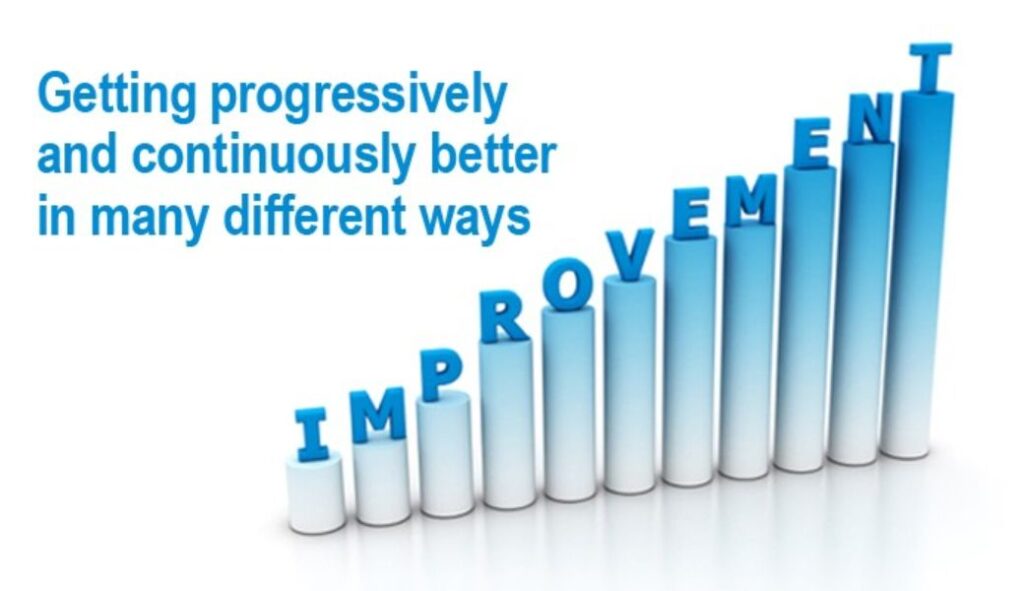
Just imagine your game as a magnificent garden but without a consistently caring one. It will turn stagnant and lose its beauty. It’s the same when you apply to players or users in general. They need something fresh, innovative, interesting, and usual.
Take a look at one of the successful games by Riot Game, Teamfight Tactics (TFT). This strategic auto battler hinges on smart adaptation and quick thinking. They offer an ingenious concept of set rotations. For every month before the latest update, TFT always updates complete metamorphosis, new themes, champions, items, and synergies. This keeps the meta dynamic, forcing players to adapt to the game’s strategies constantly. It’s the fact that there are more than 10 seasons that TFT still survives in this competitive market.
Successful games are living experiences that evolve and adapt the player feedback, and by keeping the content new. Your business should transform your game into a flexible world that players can not wait to play your game.
>>>Maybe this article is useful for you: How To Start An Online Marketing Business In 2025
How to Start a Gaming Business – Final Words
The game niches include various niches and requirements, which could be a big barrier for small start-ups. Hopefully, this comprehensive guide can help you start a gaming business with its informative and provided resources for each section. Carefully planning for your business with a business plan, financial knowledge, and professional members is the key to success in the gaming industry.

